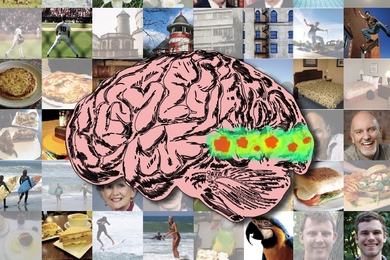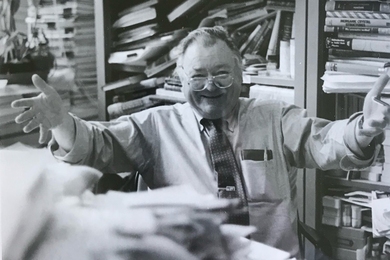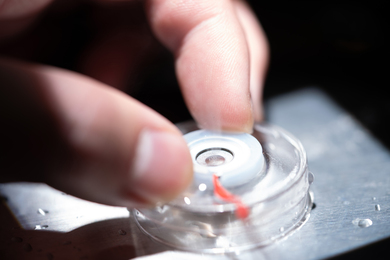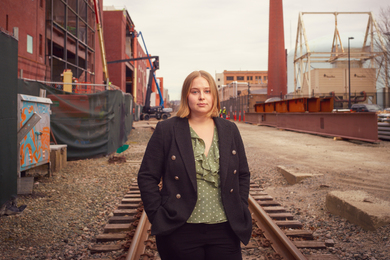New international students, many of whom had not seen the United States before their arrival on campus, humorously offered a less-than-flattering snapshot of American culture and a more-than-sci-fi picture of MIT during an Aug. 18 orientation session titled "USA 101."
The session's leaders, once new international students themselves, emphasized the strength and diversity of the MIT community, the rewards of developing relationships with professors and the support that MIT students can get to succeed.
The new students said they expected Americans would be big, extroverted, outspoken, ambitious, materialistic and unaware of life in the rest of the world. Many expected to like baseball, wear shorts, dress flashily, listen to Eminem, and eat only fast-food burgers, pizzas, candy and genetically modified foods.
Several new students were surprised at Americans' easy use of profanity. Others were concerned they might find no food other than meat-based fast food.
Some predicted that MIT would be "very, very high tech," with doors that open automatically. MIT students would work all the time, stay up all night, and have no time for sleep, fun or relationships. But others thought MIT students would "party a lot and enjoy the freedom from their parents."
Christine Colburn, advisor and undergraduate orientation coordinator in the International Students Office, acknowledged the group's stereotypes as such--except for the fast-food issue.
"Americans do eat a lot of it, and it is readily available," she said. "But you don't have to eat--or do--anything you are uncomfortable with. I'm a vegetarian and I'm always interested in finding good vegetarian food."
Colburn emphasized the inevitability of culture shock. "Everybody goes through it, no matter how smart or well-traveled, and it's hard," she said.
She outlined the stages of culture shock--the honeymoon, dream-come-true stage; the hostile, self-doubting, "I'm-in-the-wrong-place" stage; the more relaxed and humorous stage; and finally the home stage, in which routines and new friends are established. She warned the new students especially not to take the "hostility stage" too much to heart.
Colburn offered strategies for getting through the painful hostility stage, such as talking to others; exploring; keeping in touch with home, family and old friends; making friends with American students; and using staff of the International Students Office for support.
MIT's international upperclassmen and women offered advice to the newcomers in several areas, including academic issues, alcohol use, political correctness and sexual freedom.
American culture contains its own contradictions, several student speakers noted. They nodded in agreement with Saba Gul, a senior in electrical engineering and computer science from Pakistan, when she said, "Sexism is taken more seriously here than in other countries, despite the American emphasis on freedom of speech. Be careful about sexual statements and be aware of your body language. Personal space is important here. Also, homosexuality is acceptable here--be tolerant of those whose sexual preference is different from yours."
Organized by the International Students Office, "USA 101" was one of 19 events scheduled during four days of International Orientation. The full orientation schedule for students and parents appears in "The Hitchhiker's Guide," available in the Academic Resource Center.






